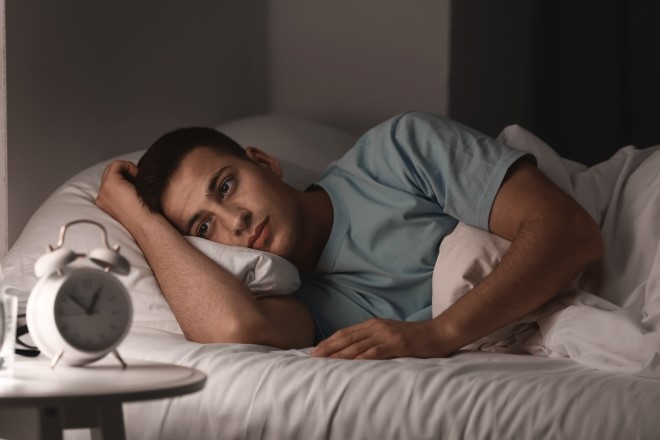
Sleep disturbances are common and often severe in people with opioid use disorder – particularly during opioid withdrawal. Scientists consider sleep problems one of the main reasons why people stop treatment for opioid use disorder or relapse to drug use.
The Helping to End Addiction Long-term® Initiative, or NIH HEAL Initiative®, funds research on the role of sleep dysfunction in opioid use disorder and recovery. Progress is being made, as several areas of inquiry aim to better understand the relationship between the body’s sleep-wake cycle, stress, and sleep. Researchers are also considering the possibility that sleep-based approaches might be adapted as a treatment for opioid use disorder.
How Does Opioid Use Affect Sleep?
Research studies in animals and humans show that even short-term opioid use can disrupt normal sleep patterns – leading to waking up more often and less time spent in certain sleep stages. Long-term opioid exposure causes persistent sleep disturbances. Sleep studies have found that people with chronic opioid misuse who were given heroin or morphine sleep less well and wake up more frequently, and the regular cycle of various sleep stages is disrupted and shortened.
Sleep problems often persist for people taking medications for opioid use disorder or even those in recovery from opioid use disorder, and the medications themselves can cause sleep problems. To find better options, HEAL-funded researchers are looking at various biological, medication-related, psychological, and environmental factors that may be involved.
HEAL-funded researchers are also studying whether the FDA-approved sleep medication suvorexant can alleviate sleep disturbances during opioid withdrawal and enhance opioid abstinence after withdrawal. Suvorexant targets the protein orexin, which fluctuates during various stages of the sleep/wake cycle. Opioids can affect orexin signaling because the nerve cells that produce orexin also carry docking molecules (receptors) for opioids, and these cells are activated during opioid withdrawal.
How Do Sleep Disturbances Affect Opioid Use and Relapse Risk?
The human sleep/wake cycle is controlled by various chemicals that are released in an approximately 24-hour pattern, known as a circadian rhythm. Important signaling systems involve the brain chemical gamma-aminobutyric acid (GABA) and stress hormones.
Numerous studies show that in addition to ramping up stress hormones, sleep deficiency is associated with a higher sensitivity to pain, emotional instability, and problems with decision making. All of these effects can increase the risk for drug use, particularly in people with opioid use disorder. Many people who use opioids say that sleep disturbance is one of the factors motivating their continued opioid use.
Toward understanding how to break this cycle, HEAL researchers are also studying the link between sleep and drug use-associated memories. Repetitive drug use forms powerful memories associated with environmental cues. Even after a prolonged period of abstinence, re-exposure to such cues can trigger drug craving and relapse.
HEAL-funded researchers are also currently using animal models to determine if sleep restriction during abstinence from opioid use is sufficient to increase opioid-seeking behaviors, a model for relapse in humans.
Can Treating Sleep Deficiency Improve Opioid Use and Recovery?
Given the multiple interactions between sleep deficiency and opioid use, improving sleep is a potential target to help people with opioid use disorder. Medications targeting GABA, such as benzodiazepines, are often used to treat sleep problems. However, benzodiazepines – often called “z” drugs (for example, zolpidem) – are not recommended for people with opioid use disorder because they enhance the respiratory depression produced by opioids. These medications also have misuse potential because GABA signals also affect the brain’s reward system that produces opioid reinforcement, tolerance, and withdrawal.
Given what we know from this and other research, HEAL scientists are considering various ways to use better sleep in the treatment for opioid use disorder. Promising avenues include sleep-focused interventions such as cognitive behavioral therapy, mindfulness-based therapy for insomnia, increasing levels of melatonin (which helps coordinate the sleep/wake cycle), and even cannabidiol (CBD) that is being tested in other HEAL research as a treatment for opioid craving.
Research tells us that sleep disturbances and opioid use disorder are intimately linked – and that current options are limited for people looking for help. HEAL-funded research is working to expand those options to help sleep be a part of the solution for individuals battling addiction to opioids.
Explore Projects in This Research Focus Area
Find more programs and funded projects within the New Strategies to Prevent and Treat Opioid Addiction research focus area
National Heart, Lung, and Blood Institute (NHLBI)
Learn more about NHLBI's role in the NIH HEAL Initiative.
Stay Connected
Stay up to date on the latest HEAL Initiative research advances by subscribing to receive HEAL content directly to your inbox.
 U.S. Department of Health & Human Services
U.S. Department of Health & Human Services
